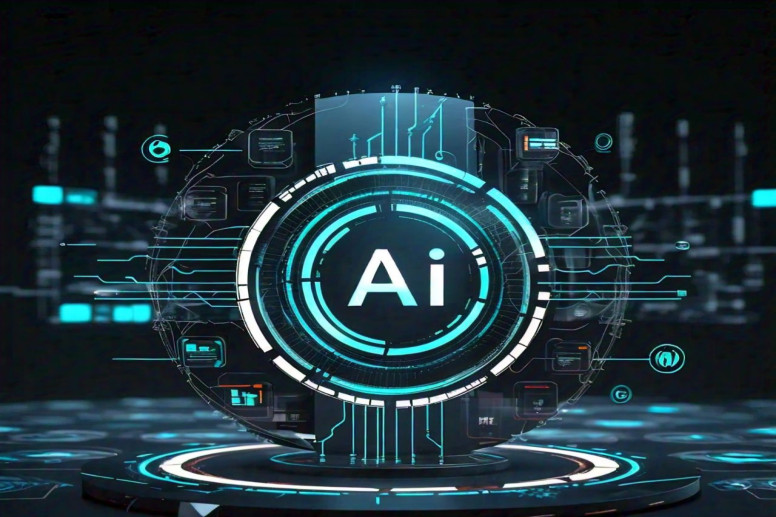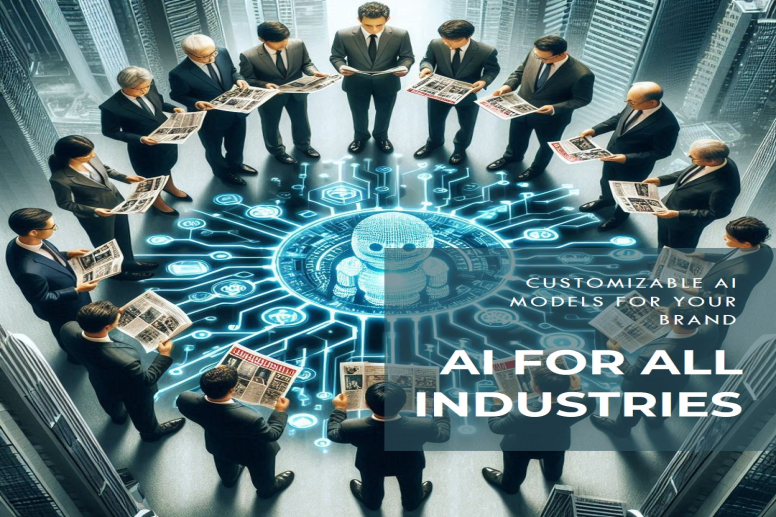
14 Sep
Companies' adoption of AI in business based on industry type.
Introduction
It has been a controversial issue about which company uses AI and how companies adopting AI wish to achieve their business goals and mission.
Artificial Intelligence (AI) has transitioned from a futuristic concept into a cornerstone of modern business operations. This powerful technology, which encompasses machine learning, natural language processing, and data analytics, is revolutionizing how companies operate, compete, and innovate.
Across the globe, businesses of all sizes are leveraging AI to optimize processes, enhance customer experiences, and drive strategic decision-making. The surge in AI adoption can be attributed to several key factors.
First and foremost is the exponential growth in data generation. With the advent of digital transformation, businesses are inundated with vast amounts of data from various sources such as social media interactions, customer feedback forms, and IoT devices. AI tools enable companies to shift through this deluge of information efficiently and extract valuable insights that inform their strategies.
Furthermore, advancements in computational power and the availability of sophisticated algorithms have made AI more accessible than ever before. Cloud computing platforms offer scalable resources that allow even small enterprises to harness the power of AI without significant upfront investments in hardware.
Global Statistics On AI Integration Across Industries
Global statistics underscore this widespread adoption. According to a report by McKinsey & Company (2022), 50% of surveyed organizations have integrated at least one form of AI into their business processes. Another study by Gartner (2023) predicts that by 2025, over 75% of enterprises will deploy some form of artificial intelligence within their operations.
In essence, as we delve deeper into the digital age, embracing AI is not just an option but a necessity for businesses aiming to thrive in an increasingly competitive landscape.
Which industry companies are using AI for their business?
Companies across various industries are embracing Artificial Intelligence (AI) to enhance their operations and stay competitive. Here are some key notable industries:
E-commerce
Technology
Finance
Manufacturing
Healthcare
Energy
Automotive
Retail
Logistics
Telecommunications
Media and Entertainment
Real Estate
These companies demonstrate how AI can be applied in diverse industries to improve efficiency, decision-making, and customer experiences. Larger businesses are driving AI adoption, with 35% implementing AI to enhance competitiveness.
What are the benefits Of AI for Business Operations And Efficiency?
The benefits of AI for business operations and efficiency include:
1. Automated Processes: AI automates repetitive tasks, freeing up staff for strategic work.
2. Enhanced Decision-Making: AI provides data-driven insights, improving accuracy and speed.
3. Improved Customer Experience: AI-powered chatbots and personalization enhance customer interactions.
4. Increased Productivity: AI streamlines workflows, reducing manual labour and errors.
5. Predictive Maintenance: AI detects equipment issues, minimizing downtime and maintenance costs.
6. Supply Chain Optimization: AI analyzes and optimizes supply chain logistics, reducing costs and improving delivery times.
7. Cybersecurity: AI-powered systems detect and respond to cyber threats, improving security.
8. Data Analysis: AI quickly processes large datasets, uncovering valuable business insights.
9. Cost Savings: AI reduces labour, energy, and resource costs through optimized operations.
10. Competitive Advantage: AI adoption sets businesses apart, driving innovation and market leadership.
11. Scalability: AI handles growing workloads, adapting to changing business needs.
12. 24/7 Operations: AI enables continuous operations, even outside regular business hours.
13. Error Reduction: AI minimizes human error, improving accuracy and quality.
14. Employee Augmentation: AI assists employees, enhancing their capabilities and job satisfaction.
15. Innovation: AI drives new products, services, and business models, fueling growth.
Future Trends And Predictions For AI in Business
The future of AI in business is looking bright! Here are some key trends and predictions to watch out for:
Increased Adoption of Generative AI
By the end of 2024, AI will enable professionals to do their jobs in new and more powerful ways, with 73% of US companies already adopting AI in some areas of their business.
Transformative Value
Companies that successfully implement AI will achieve significant ROI, but only a few will succeed in achieving transformative value from it.
Redefining Leadership Roles
AI will change how leaders do their jobs, requiring them to learn new skills and oversee teams with AI agents.
Trust and Responsibility
Building trust in AI will be critical, requiring responsible AI practices and governance.
Data Modernization
AI will help turn more data into value, but companies need to digitize data, move it to the cloud, and enable AI to access it.
New Products and Services
AI will give rise to new classes of products and services, making it easier to develop new offerings and revenue streams.
Automation and Augmentation
AI will automate routine tasks and augment complex decision-making, freeing up knowledge workers to focus on high-value tasks.
Industry Transformation
AI will transform industries such as finance, tax, legal, IT, and compliance, making processes more efficient and effective.
Conclusion:
AI is poised to revolutionize the way businesses operate, and companies that adapt quickly will reap the benefits. Though AI may pose threats to team employment but rather it's a great tool for effective teamwork.

